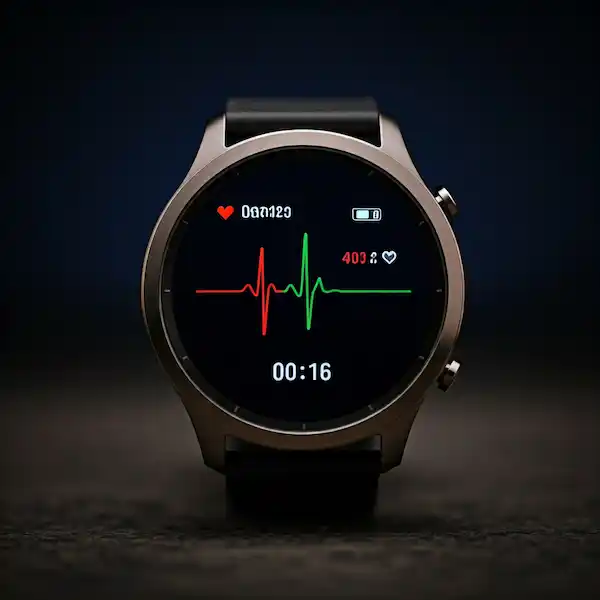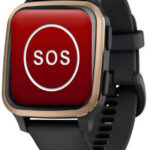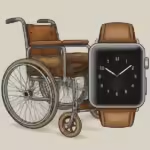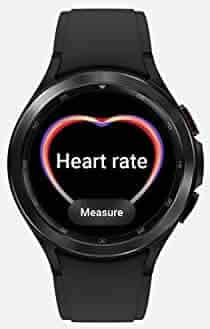Using a Smartwatch Heart Monitor Watch for Seniors:
Smartwatches for seniors have become increasingly popular in recent years, offering a convenient way to stay connected, monitor health, and improve overall well-being. These devices are designed to be user-friendly and packed with features that cater to the specific needs of older adults. From tracking daily steps and heart rate to receiving calls and messages, smartwatches for seniors can enhance their quality of life in numerous ways and serve as a safety watch for seniors.
Smartwatches with heart rate monitors offer a valuable tool for monitoring the health of seniors. Here’s how to utilize this data effectively:
Understanding Heart Rate Data for Seniors:
- Normal Heart Rate: Understand a senior’s typical resting heart rate and heart rate during activities.
- Heart Rate Variability (HRV): This measures the time between heartbeats. Lower HRV can indicate stress or health issues.
- Abnormal Heart Rates: Be aware of signs of tachycardia (rapid heart rate) or bradycardia (slow heart rate).
Monitoring for Senior’s Health Concerns:
- Early Detection: Consistent heart rate monitoring can help detect potential health issues early, such as arrhythmias or heart failure.
- Medication Effectiveness: Track heart rate to assess the effectiveness of heart medications.
- Exercise Intensity: Monitor heart rate during physical activity to ensure it stays within safe limits.
Improving the Overall Health of Seniors:
- Sleep Monitoring: Some smartwatches track heart rate during sleep, helping identify sleep disturbances or apnea.
- Stress Management: Increased heart rate can indicate stress. Use this data to manage stress levels.
- Medication Reminders: Set reminders for medication based on heart rate patterns.
Sharing Data with Healthcare Providers:
- Regular Check-ups: Share heart rate data with doctors during regular check-ups.
- Emergency Situations: In case of an emergency, heart rate data can provide valuable information to medical professionals.
Important Considerations:
- Individual Variations: Heart rate varies among individuals. Consult a doctor to establish normal ranges.
- Accuracy: While smartwatches are helpful, they aren’t medical devices. Consult a doctor for diagnoses.
- Data Privacy: Ensure data privacy settings are secure.
Additional tips for getting accurate heart rate readings from your smartwatch:
- Warm up before taking a reading. This will help to increase blood flow to your wrist and make it easier for the sensor to get a reading.
- Relax and sit still while taking a reading. This will help to minimize movement and ensure that the reading is accurate.
- Take multiple readings and average them together. This will help to reduce the chance of getting an inaccurate reading.
- Be aware of the factors that can affect your heart rate, such as stress, caffeine, and exercise. Avoid taking readings immediately after doing any of these activities.
- Check to be sure the Bluetooth connection is working well.
- The strap on the watch fits tight on your wrist.
- Make sure the back of the sensor completely touches your skin.
- Don’t move too much, sometimes too much movement can effect the ability of your watch to sense your heart rate.
If you have any concerns about your heart rate or health, consult your doctor.
Best Smartwatch Heart Monitoring Apps for Seniors
While many smartwatches come with built-in heart rate monitoring features, there are also dedicated apps that can enhance these capabilities and offer additional insights for seniors:
Dedicated Health Apps
- MyFitnessPal: This popular app offers a comprehensive suite of health tracking features, including heart rate monitoring. It also provides tools for calorie counting and meal planning.
- HealthifyMe: Another excellent option for seniors, HealthifyMe offers personalized diet plans, workout routines, and heart rate tracking.
- Cardiogram: This app specializes in heart rate monitoring and can even detect potential heart health issues like atrial fibrillation.
General Health and Wellness Apps
- Apple Health: For Apple Watch users, the Apple Health app provides a central hub for tracking various health metrics, including heart rate.
- Samsung Health: Similar to Apple Health, Samsung Health is a comprehensive health tracking platform for Samsung Galaxy Watch users.
- Google Fit: This app is designed for Android users and offers a range of health tracking features, including heart rate monitoring.
Considerations for Seniors:
- Ease of Use: Look for apps with intuitive interfaces and clear instructions.
- Data Accuracy: Ensure the app’s heart rate monitoring is accurate and reliable.
- Integration with Other Health Apps: If seniors use other health apps, consider those that can integrate with their smartwatch’s data.
- Emergency Features: Some apps offer emergency features like fall detection or automatic alerts to caregivers.
Remember: While these apps can provide valuable insights, they should not replace professional medical advice. If you have concerns about your heart health, consult with a doctor.
Smartwatches for Seniors with Excellent Heart Rate Monitoring
Here are a few smartwatches that are particularly well-suited for seniors due to their user-friendly interfaces, accurate heart rate monitoring, and additional health features:
Garmin Venu Sq 2
- Key features: Stylish design, accurate heart rate monitoring, stress tracking, sleep tracking, and built-in GPS.
- Benefits for seniors: The Venu Sq 2 offers a balance of features and simplicity, making it easy for seniors to use. Its stress tracking and sleep tracking features can help seniors manage their overall health.

Fitbit Sense
- Key features: ECG app (in select regions), skin temperature sensor, stress management tools, and advanced sleep tracking.
- Benefits for seniors: The Sense offers a range of health features, including the ability to take an ECG at home (where available). Its stress management tools can help seniors manage their emotional well-being.

Apple Watch Series 8
- Key features: ECG app, blood oxygen monitoring, crash detection, and advanced workout tracking.
- Benefits for seniors: The Apple Watch offers a wide range of health features, including the ability to take an ECG at home. Its crash detection feature can provide peace of mind for seniors who may be at risk of falls.

When choosing a smartwatch, it’s important to consider the following factors:
- Ease of use: The smartwatch should have a simple interface that is easy for seniors to navigate.
- Battery life: The smartwatch should have a long battery life to avoid frequent charging.
- Comfort: The smartwatch should be comfortable to wear for extended periods.
- Price: The smartwatch should fit within your budget.
By considering these factors, you can choose a smartwatch that is both functional and enjoyable for seniors.
You should also consider a smartwatch for seniors with fall detection. (How to Use Smartwatch Fall Detection?)
Frequently Asked Questions (FAQ) About Smartwatches for Seniors
1. What are the benefits of using a smartwatch for seniors?
- Health tracking: Smartwatches can monitor heart rate, steps, sleep, and other health metrics, helping seniors stay active and manage their health.
- Communication: They can receive calls, texts, and notifications, keeping seniors connected with loved ones.
- Safety: Some smartwatches have features like fall detection and emergency SOS, providing added security.
- Convenience: Smartwatches can control smart home devices, set reminders, and perform other tasks, making daily life easier.
2. Are smartwatches difficult for seniors to use?
Many smartwatches are designed with user-friendly interfaces and large screens to make them easier for seniors to navigate. However, it’s important to choose a smartwatch with features that are relevant and easy to understand.
3. How long does a smartwatch battery typically last?
Battery life can vary depending on usage, but most smartwatches can last for several days on a single charge. Some models offer extended battery life for those who are frequently away from home.
4. Can smartwatches be used for medical purposes?
While some smartwatches have health tracking features, they should not be used as a substitute for medical advice. If you have concerns about your health, consult with a doctor.
5. How much do smartwatches for seniors cost?
Prices for smartwatches can vary widely depending on features, brand, and design. There are options available at different price points to suit various budgets.
6. What are some popular smartwatch brands for seniors?
Some popular brands include Apple, Samsung, Garmin, Fitbit, and Amazfit. Each brand offers a range of models with different features and price points.
7. Can smartwatches be used with hearing aids?
Some smartwatches have features that can help improve hearing aid compatibility, such as hearing aid mode or direct streaming. It’s best to check the specific features of the smartwatch you’re considering.
8. How do I choose the right smartwatch for a senior?
Consider the senior’s needs, preferences, and budget when selecting a smartwatch. Look for features that are relevant to their lifestyle, such as health tracking, communication, or safety.
Additional helpful information:
Here is some help about using a smartwatch for wheelchair or disabled people.. Smartwatch for Wheelchair Users and Disabled





